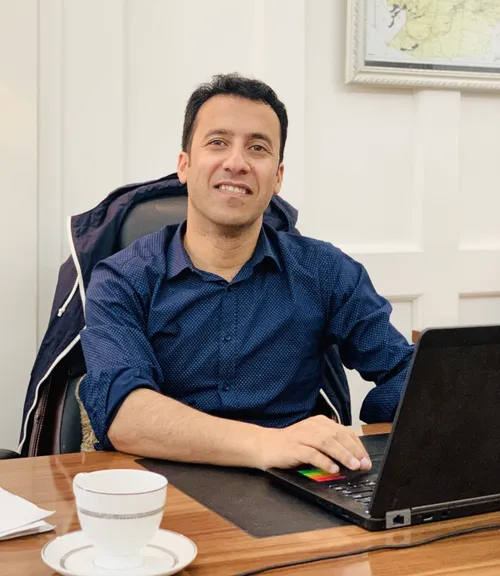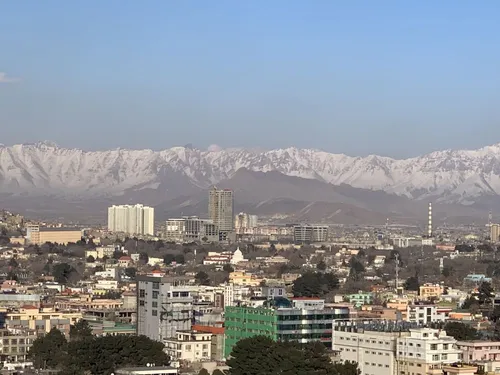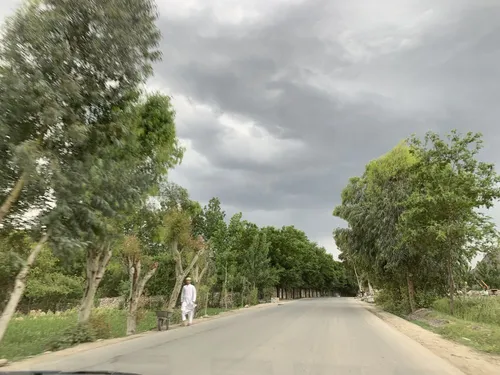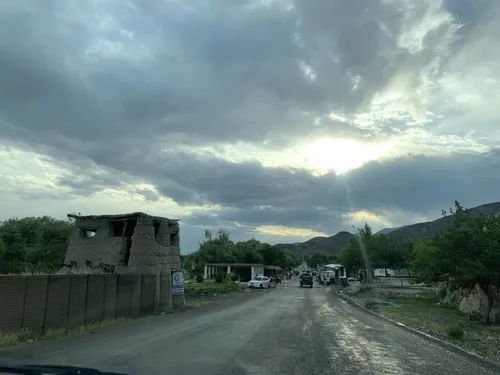"As scientists in Afghanistan we face many challenges"
Interview with Fazlullah Akhtar, ZEF alumnus
Fazlullah Akhtar conducted his doctoral research at ZEF from 2013-2017 and obtained his doctoral degree from the Agricultural Faculty of Bonn University in 2017. He is now working as an infrastructure expert at the office of the chief advisor to the President of Afghanistan.
In a country with ongoing conflict such as Afghanistan what and how can science contribute to addressing the numerous challenges?
We face many challenges. Data relevant to agriculture and natural resources were destroyed in the past years in which the country has been involved in non-stop violent conflicts. Monitoring stations which were recording meteorological data were destroyed. A secondary option is the use of satellite data. I also got data from NASA (National Aeronautics and Space Administration) for my PhD research on the hydrological conditions in the Kabul river basin. Today, the Afghan government has installed some stations, for example under the Ministry of Agriculture as well as the Ministry of Energy and Water. They are working to refine and calibrate the data properly to achieve a realistic spectrum of the meteorological situation in the country. Without these data we wouldn’t have been able to plan any development projects. In the last 18 years, there has not really been a smart project to fill all the data gaps and initiate research especially in the field of hydrology etc. We still don’t have accurate data on the demand-supply gaps especially in the agriculture sector which consumes around 97-98% of our surface water. As an agricultural country, we still have not been able to create a market for the local labor force because of our inaccurate planning and management which has been caused by the absence of reliable data sets. I think we have to invest on our capacity and have to build up technical staff for the relevant organizations.

How does the academic landscape look like in Afghanistan at the moment?
Hardly any of the Afghan universities has specialized Master or PhD programs in applied sciences, with minor exceptions. This means there is no research and without research we cannot grow to compete and meet the growing challenges in agriculture and water sector. The government cannot afford to finance research projects in an adequate way facing security challenges posed by the Taliban and by neighboring countries interfering in the country. The public universities receive only minimal support. Unfortunately, little investment has been made in the sector of science, research and education over the past years or even decades. Changing this is really important and our only hope. Because if you cannot educate people, you cannot change institutions and social behavior.
What role does international cooperation play?
In the past, most of the emergency aid from the international community was not spent on science and technology. We got some financial assistance mainly for primary schooling but the quality of the education is questionable. The U.S. is also offering a considerable number of Master scholarships to Afghan students on annual basis but that is not enough as a limited number of people return back to the country due to prevailing insecurity and local challenges. Also, the University of Bonn, in particular the Department of Geography, has had cooperation with Kabul University for the last 40-50 years which was interrupted by the war. The people who worked in that cooperation program moved to Germany or elsewhere or otherwise got retired. What has been efficient and productive in the long run was the German cooperation through DAAD with the specialized public policy and good governance program. Some of the people they trained are working in leading positions now and serve the country in different sectors. I myself am an example, as I received a DAAD scholarship and am working at the office of the chief advisor to the president nowadays.
In your research you assessed the hydrological conditions in the Kabul river basin*). Which significance has the water question in Afghan politics and society today?
Afghanistan has five major river basins and except for one basin, four river basins deliver water to Iran, Pakistan, and other countries in Central Asia. Afghanistan has different climatic zones and the country produces almost every fruit. If the water was used efficiently there would be no poor farmer. Most of the water management infrastructure was destroyed during the war or it was left unattended so losses in the water sector occur. We have more than 40% losses in canals because they are not lined or concreted. At the field level we have mostly small farm units. In addition, the land is not even, so the water runs down and the efficiency is in the range of 36% which means the water losses are at 60 plus percent at the farm level. However, the state and its institutions do not offer any specialized program for the management of this precious natural resource, and for the farmers it is free. My PhD-thinking starts from there: knowing there is no data, there are challenges. I thought I could do something to assist the irrigation sector which is the main bread-winning source for the Afghans. We have 12% arable land and we produce a lot but we need to do more in order to reduce the dependency on foreign aid and imports, this ultimately contribute to the poverty alleviation and food security. The present government has special attention to the water sector but unfortunately increasing insecurity across the country has split down the attention of the government and that is something which slows down the accelerated progress in water sector. If the proposed programs are implemented well, there are hopes that efficiency of the water management system will be increased.
Which role does climate change play and what impacts do you expect?
I analyzed the situation taking into account projected future climate change scenarios. Most of the water Afghanistan receives is because of snowfall which melts and runs down from the mountains. If the temperatures rise and there is less snow fall, the current situation will go beyond control. The ground water level in Kabul is already declining. In some areas the groundwater table has declined by 25 meters and even more. Generally, there is less recharge of groundwater compared to the withdrawal. If this situation deteriorates further people will have to migrate, violence and political tensions might increase too, since competition for water will be high which drives not only the agriculture sector but affects industry and municipal sector too. So the water question is part of the country’s future challenges. Of course there are issues with the riparian countries. There are already issues with Iran about the Salma Dam and some other projects. Similarly there are potential issues with other Transboundary water projects which might escalate in the future; so the current conflict is also about natural resources, e.g. on water. So water remains my focus and it’s one of the top priorities of the country now.
How could efficiency and sustainability of water management and use be increased?
Our ministries in charge, together with international partners are working on the issue. As everywhere in the world, Afghanistan’s agricultural sector consumes most of the available water resources: around 97 to 98%. Only 1% is for drinking and municipal supply, and hardly 1% is for industrial purposes. Although we use so much surface water for agriculture, we still import rice and flour for bread from neighboring countries. Most farmers are not aware of the water losses. The water distribution system is not fair: farmers at the upstream canal get as much water as they want and the more water they grab the more they consume. The downstream farmers, however, might not even get a quarter of the amount they need. So there’s an imbalance between upstream and downstream farmers which invokes conflicts. The water distribution system is completely supply-based. Awareness should be raised that a farmer just uses as much water as he needs for his crops and lets the rest flow down for the midstream and downstream farmers. Thus, we could also use more water for the industrial sector which has to be expanded. And also municipal demand for water is increasing day by day, as water consumption of citizens living in cities is increasing. Agricultural consumption of water should be decreased and the production increased via higher efficiency.
On behalf of the University of Bonn you signed a Memorandum of Understanding between ZEF and the National Statistic and Information Authority in Afghanistan (NSIA) in December 2018. What is the purpose of this collaboration and what is the state of the project?**)
The core components of this memorandum was to connect joint research projects, data sharing, research paper writing, joint reports writing, and one of my key concerns is always to build up the capacity of the NSIA to work independently in the future. Since I knew it’s one of the ZEF’s core goals to build capacity in developing countries I thought we could use the skills of ZEF here more wishfully and smartly. And we were successful as we learn from each other and NSIA is linked to a European level organization like ZEF with its global reputation. If we work together I think NSIA could be independent within the next five to 10 years and may lead such projects by themselves. This is a hopeful start.
Dr. Akhtar, we thank you for this interview.
See also interview in German in the Bonn University Magazine "forsch": https://www.uni-bonn.de/die-universitaet/publikationen/forsch/e-forsch/sommer-2019
*) More information about Fazlullah Akhtar's doctoral research in ZEF news no. 36, page 11, here.
**) More information about the Memorandum of Understanding here.
Photos in this article by Fazlullah Akhtar.




